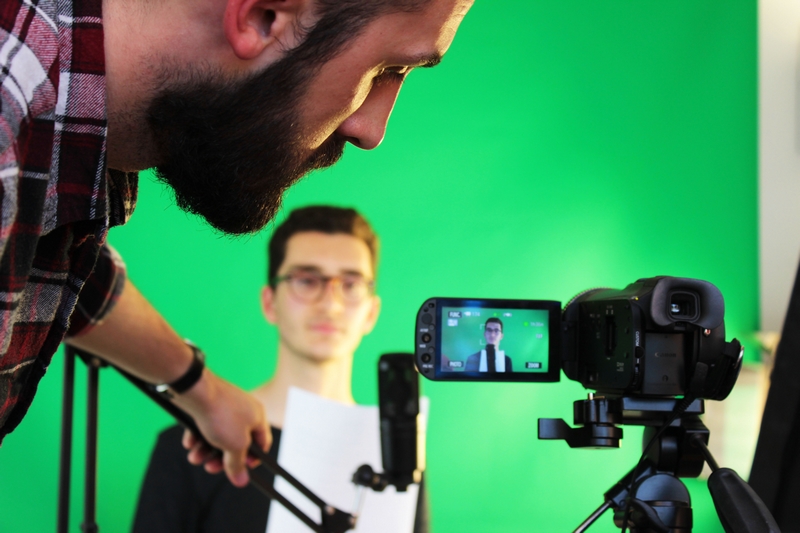Special effects in cinema and drama
When we talk about special effects, the first thing that comes to mind is usually: AFTER EFFECT
Well… not exactly! Or, yes, you’re right! But there’s more.
You’ll see that the world of effects is, in reality, much broader and richer than you might think!
Explanation!
1) What is an effect?
An effect is an aesthetic phenomenon that is deliberately sought after, and to achieve it, we use specific techniques. In the artistic context, here are the different types of effects we can encounter:
- Makeup effects. These include famous wounds, monsters, and creatures—essentially, the transformations we often associate with Halloween!
- Mechanical effects. Also called practical or physical effects, these involve using props such as landscape models, set pieces, or pyrotechnics.
- Chemical effects. These overlap with pyrotechnics and are used to create fires, explosions, age sets, produce smoke, or change colors, like making potions in some films.
- Video or digital effect. The well-known After Effects type of effects!
All special effects are produced across three key stages:
- Pre-production
- During filming
- Post-production
Makeup effects are done in pre-production (obviously, since actors need to put make up on before filming!). Mechanical and chemical effects are created during filming. Video effects are applied in post-production, which is the topic I’ll delve into a bit more deeply.
2) Special effects in cinema
Georges Méliès, an illusionist and inventor, significantly contributed to the development of special effects techniques. Using tricks like trompe-l’œil and superimposition, he created groundbreaking effects.
The 2010s marked the rise of digital technology in film studios. SFX, VFX, let’s get ready for a flood of acronyms! You may be familiar with them already:
- SFX: Special Effects
- VFX: Visual Effects
SFX refers to a combination of chemical and mechanical effects created during filming, while VFX happens in post-production. VFX uses digital tools to integrate effects into film sets, achieving a realistic on-screen appearance
In the realm of VFX, there are several methods used to bring films to life:
- 3D compositing. This involves incorporating digital environments or creating specific effects using 3D models on a computer.
- Rotoscoping. This technique uses real actors to outline figures frame by frame, making them appear in 3D animated films.
- Green/Blue Screen. This allows a background or setting to be digitally added to a scene.

Special effects aim to create illusions that don’t exist or are too complex to produce during filming. That’s the magic of cinema! So what about drama?
Special effects in drama
Drama isn’t left behind when it comes to special effects. In fact, the theatrical world utilises makeup, mechanical, and chemical effects, but everything happens live! This requires an impressive level of technical mastery, as there’s only one chance to get it right.
From lighting control and stage design to the use of smoke, fire, and water, everything is managed in real-time while ensuring the safety of both actors on stage and the audience in the theatre. Technicians become actors in their own right during these performances!
Today, theatrical effects are evolving rapidly, driven by two major trends:
- magic: illusion tricks creating surprise on the stage, enabling costume changes, object appearances, and more!
- video: integrating video into performances allows directors to include elements that are otherwise impossible to stage. However, this must be carefully balanced!
Many modern shows now combine these techniques beautifully. A standout example is Le Mime et L’Étoile, performed at the Puy du Fou. This masterpiece delivered a breathtaking blend of effects, earning the title of World’s Best Show in 2024. I’ve seen it, and I wholeheartedly agree, it’s absolutely phenomenal!
/medias/6cOIUcKx8a/image/puy_du_fou_mime_etoile1680877612391-format16by9.png)
It’s clear that effects play a significant role in today’s cultural landscape. Add to that artificial intelligence to, and we’ll soon transcend the boundaries of reality!
Yet, the most genuine and magical aspect remains the unique expressions conveyed by actors and actresses in the fleeting moment they share with an attentive audience.
I hope this article has taught you something new!
Now that you know all this, don’t hesitate to try our little “knowledge quiz” below!



